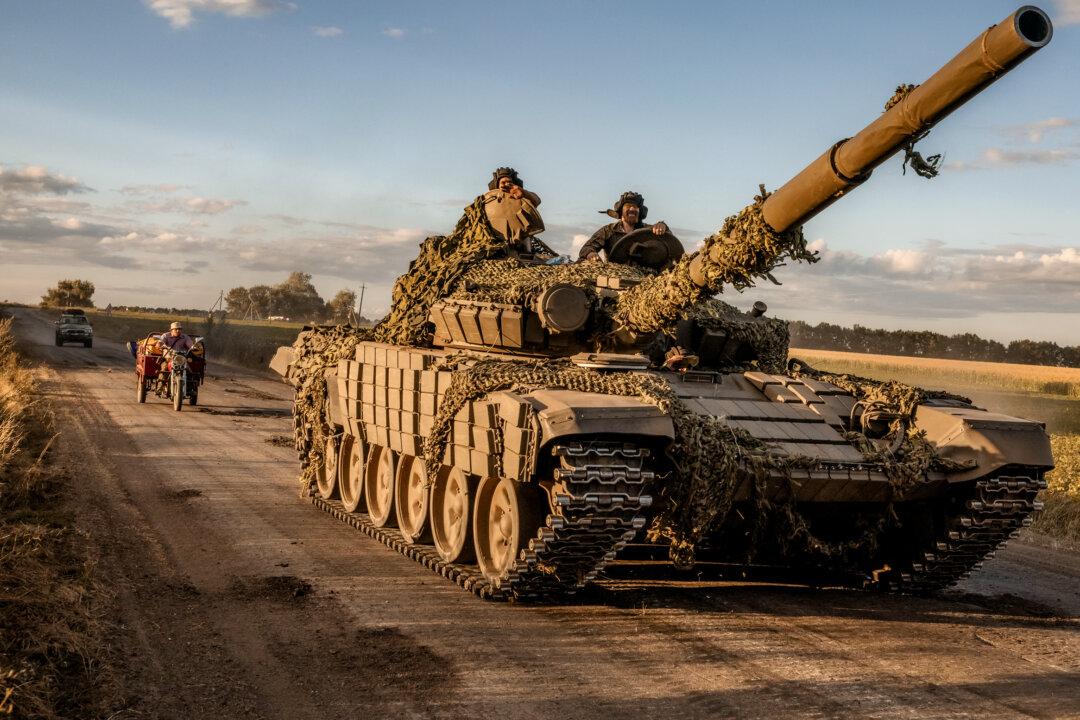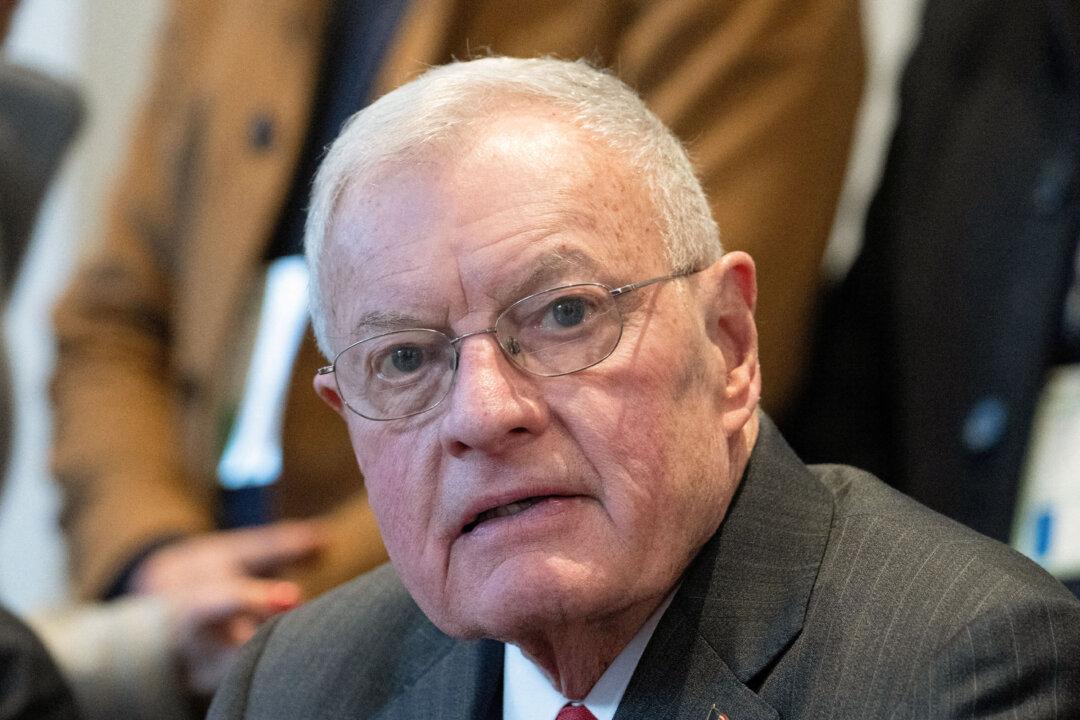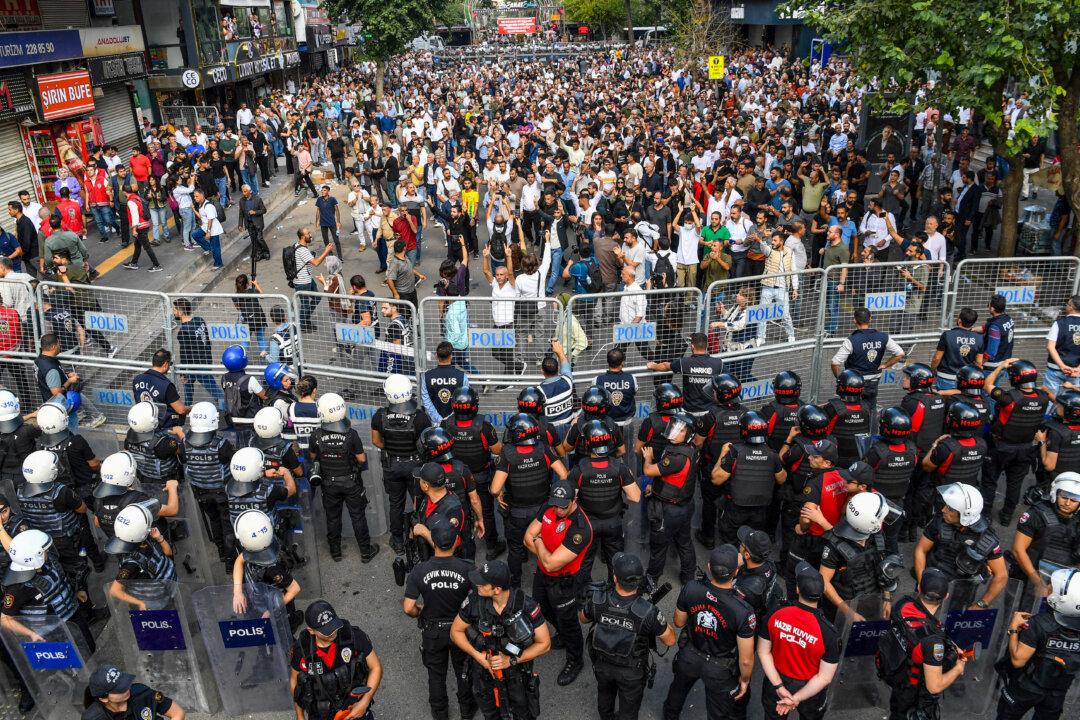Chinese leader Xi Jinping arrived at Moscow’s Vnukovo Airport on March 20 for a three-day state visit to Russia, during which he is slated to hold talks with Russian counterpart Vladimir Putin.
The meeting comes as Russia slowly makes advances in its monthslong operation to capture the eastern Ukraine city of Bakhmut. The bloody battle has led to massive losses on both sides, especially the Russians.
Xi and Putin are meeting at a time when the war in Ukraine is entering a stage in which it could end conclusively or drag out into a stalemate, according to Madhav Nalapat, a strategic affairs analyst and vice chair of the India-based Manipal Advanced Research Group.
“Putin is under pressure from his commanders to unleash the full fury of Russian weapons against Ukraine rather than have the war get prolonged,” he told The Epoch Times. “Xi clearly wants to know whether Putin will go all out or continue with the present tactics.”

The “hasty arrangement and secret get together” of Xi and Putin is because the Russian military is on the “brink of collapse” in Ukraine, says Frank Lehberger, a Germany-based sinologist.
“Putin desperately needs Xi to come now and pledge his help, or it will be too late for Putin and his dreams of an autocratic empire,” he wrote.
“Xi knows all this, and he also desperately needs Russia to fight on ... not only against Ukrainians but by association against the entire democratic West or NATO, which are the CCP’s [Chinese Communist Party] existential enemies.”

Nalapat said that Russia losing a war to Ukraine would weaken China’s position significantly in the international order and the timing of the meeting is mindful of that.
Upon his arrival, Xi told reporters that Moscow and Beijing sought to act in tandem to “uphold the U.N.-centric international system” and “safeguard the world order based on international law and the fundamental norms of international relations [based on the] principles of the UN Charter.”
Xi, who secured an unprecedented third term earlier this month, said he planned to hold wide-ranging talks with Putin regarding bilateral relations and other issues of mutual concern.
Ukraine on Agenda
Shortly before Xi’s arrival, Kremlin spokesman Dmitry Peskov also confirmed that the two leaders would discuss a Chinese proposal for resolving the conflict in Ukraine, which was invaded by Russia in February 2022.“The topics that were touched upon in this [Chinese] plan will inevitably be raised during the exchange of views on Ukraine,” Peskov said.
The issue of Ukraine, he added, “will feature on the agenda.”
Offered by Beijing earlier this month, the 12-point plan calls for a cessation of hostilities, the resumption of negotiations, guarantees to ensure global supply-chain security, and an end to unilateral sanctions and what it calls the “Cold War mentality.”

In a March 19 article published in the CCP-run newspaper People’s Daily, Putin voiced appreciation for Beijing’s “well-balanced stance on events in Ukraine” and its “understanding of their historical background and root causes.”
Putin also welcomed what he described as Beijing’s “readiness to make a meaningful contribution to the settlement of the crisis,” according to the Kremlin’s translation of the article.
Later in the same article, Putin asserts that Moscow “is open to the political and diplomatic resolution of the Ukraine crisis.” He also claims that it “was not Russia who broke off the peace talks [with Kyiv] back in April 2022.”
Lethal Arms for Russia
There has been rising apprehension about China supplying assistance to Russia. U.S. Secretary of State Antony Blinken said in February that China is already providing “non-lethal” weapons to Russia during the war and is considering supplying lethal assistance. Beijing denies those claims.Experts say that Xi’s purported role as peacemaker in the conflict is just a smoke screen, pointing to Beijing’s supply of “dual-use” equipment to Moscow that supports its military efforts.
Geopolitical analyst Brandon Weichert said that China has long been providing “vital support and supplies” to Russia.
“The Biden administration knows full well that there are Chinese ‘technicians’ working alongside Wagner Group units in Bakhmut, helping them to maintain the drone fleets that Chinese drone makers have sold to the Russians,” he said, referring to the private mercenary group.

Nalapat said that misleading the enemy is a “standard operating procedure” for the CCP, noting that the regime is supplying arms to Russia through discreet channels.
“Do you believe that the flood of weapons, many sophisticated, coming to Russia from North Korea and Iran have all been made in those two countries?” he said.
In June 2022, for example, Russian firm Tekhkrim imported rifles from China North Industries Group Corp. Ltd., a large state-owned defense contractor. The data also showed that Russian companies received 12 shipments of drone parts and more than 12 tons of body armor from China via Turkey in late 2022.
“All these activities are in contravention of current international sanctions,” Lehberger said, adding that the reported efforts are only the tip of the iceberg.

In addition to Iran and North Korea, China also is sending arms to Russia through other countries such as Burma (also known as Myanmar), Serbia, Turkey, and Belarus, which is a staunch Russian ally in Eastern Europe, according to Lehberger.
After his summit with Putin, Xi will talk via satellite link to Ukrainian President Volodymyr Zelenskyy for the first time since the invasion. Lehberger termed this as Xi’s “make-believe peace mission.”
Xi will aim for a temporary ceasefire to earn recovery time for Putin’s depleted army and Russia will “at a later time” attack Ukraine more fiercely, Lehberger said.
US: Ceasefire Under Beijing Plan ‘Unacceptable’
On the same day that Putin’s article was published, Kirby said calls for a ceasefire in Ukraine by Putin and Xi would be “unacceptable.”“All that’s going to do is ratify Russia’s conquests to date,” he said in televised comments. “All that’s going to do is give Mr. Putin more time to refit, retrain, remain, and try to plan for renewed offensives at a time of his choosing.”
U.S. officials, along with their counterparts in Ukraine’s capital Kyiv, have ruled out any negotiations until Russian forces entirely withdraw from what they see as occupied Ukrainian territory.
That includes the Donetsk, Luhansk, Kherson, and Zaporizhzhia regions, which Moscow effectively annexed last September, and the Black Sea region of Crimea, which since 2014 Moscow has viewed as Russian Federation territory.

Last year, high-level peace talks were held in Istanbul between Russian and Ukrainian officials. At one point, the talks appeared to be making progress, with both sides reportedly willing to make concessions.
China’s Economic Stake
Experts said that China has long-term economic agendas vis-a-vis the Russia–Ukraine war and its economic goals over the next decades are linked with Beijing’s subjugation of the Russian economy.“Russia is squarely in the camp of China’s new empire; the vast Russian wilderness will become protein for which the dragon can feed on as it rises over the next decade, and Putin will become a powerful vassal prince under Xi Jinping,” said Weichert, who added that fusing the Chinese and Russian economies would be a major victory for Xi and, for that, it would need Russia to be ensnared in a protracted conflict with Ukraine.

Russia has become China’s most important supplier of industrial raw materials at discounted prices, Nalapat said. The two countries want to work together to topple the U.S. dollar (USD) as the global reserve currency.
“A weakened U.S. dollar would in their view boost their own currencies, especially the RMB [Chinese yuan]. For some time, much of U.S. deficit funding has come from increases in overseas purchases of USD as a reserve currency, and a dollar reset would significantly crimp the ability to spend of the U.S. government,” he said.
Xi wants the United States not only to be weakened but also be deprived of reliable and functioning allies within Europe, according to Lehberger, who sees the Ukraine war as vital to Beijing’s economic game plan against Washington.
“A weak [European Union] will then be earmarked to become an economic dependency of China.”






